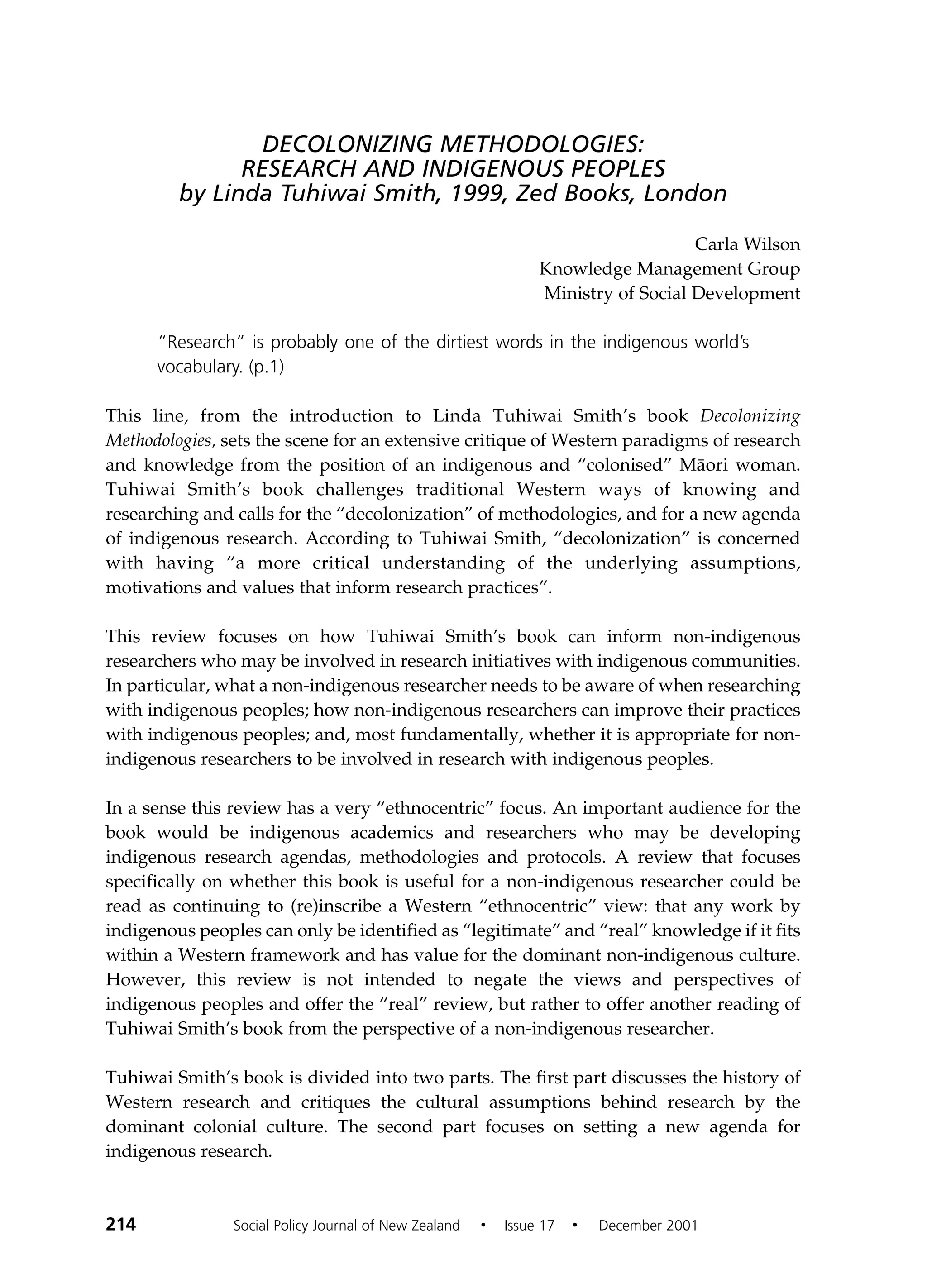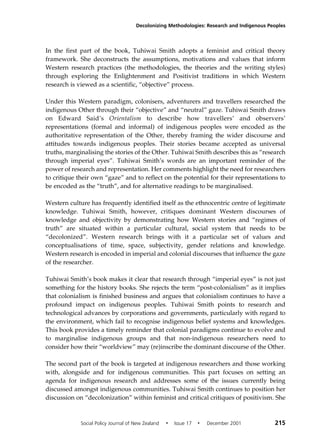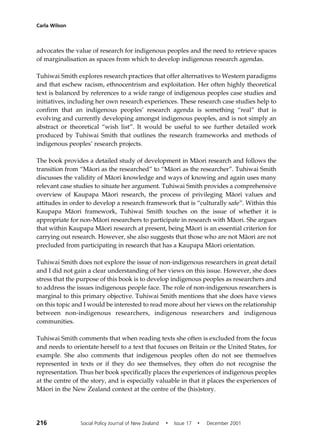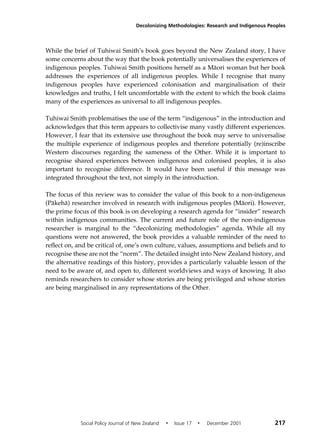Linda Tuhiwai Smith's book "Decolonizing Methodologies" critiques Western research paradigms and their impact on indigenous peoples. It calls for new indigenous research methodologies that reject racism, ethnocentrism, and exploitation. The book examines how research under colonialism framed indigenous peoples through an imperial lens and marginalized their stories and knowledge. It advocates for indigenous peoples to reclaim research as a space from which to develop their own research agendas and methods centered on indigenous values and ways of knowing.



